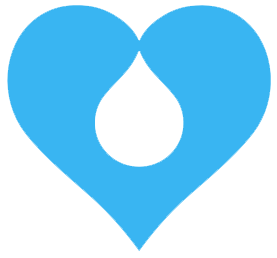Participant Guidelines
Written specifically for DD&I Slack, but to be adapted for other spaces. These guidelines apply to all DD&I spaces, as applicable.
-
Listen actively, read carefully, and be understanding.
-
If joining a conversation, read the backlog. Give other Participants the opportunity to communicate effectively.
-
Assume good intent behind other Participants’ statements. DD&I is very diverse, with Participants from all over the globe. Be aware of cultural and linguistic quirks.
-
There are also many Participants who are new to this space. Assume that they have good intent but have not yet mastered the language or ideas. We want to help them!
-
-
Speak from your own experience, instead of generalizing. Recognize the worth of others’ experience. Try not to speak for others.
-
Use “I” instead of “they,” “we,” and “you”.
-
All Participants should recognize that other Participants have their own unique experiences.
-
Don’t invalidate another Participant’s story with your own spin on their experience. Instead, share your own story and experience.
-
-
Challenge ideas, feelings, concerns, or one another by asking questions. Refrain from personal attacks. Focus on ideas first.
- Avoid verbal challenges, backhanded insults, gender/race/region stereotyping, etc.
-
Take part to the fullest of your ability and availability.
-
Community growth depends on the inclusion of individual voices. The channel wants you to speak up and speak out. Everyone has a different amount of time to contribute. We value participation here if you can give 5 minutes or 5 hours.
-
We do welcome those who quietly come to lurk and learn, or “lurk,” but please introduce yourself and say hello!
-
-
Accept that it is not always a goal of inclusion to agree.
- The goal is to gain a deeper understanding of each other, and act on that understanding with empathy. This creates a more welcoming, inclusive, and safe environment.
-
Be conscious of language differences and unintended connotations.
- “Text is hard” - be aware that it is difficult to communicate effectively via text.
-
Acknowledge individuals’ identities.
-
Use stated names and pronouns. Do not challenge a person’s race, sexuality, disability, etc.
-
If you are unsure how to address someone, ask them discreetly and respectfully. For example, for example, if you are unsure what pronouns to use, send a private message and ask. Using the correct pronouns will help others.
-
-
Some off topic conversation is okay.
-
Some cross posting of announcements is okay. The following is not permitted:
-
Thread hijacking
-
Spamming
-
Commercial advertising
-
Overt self-promotion
-
Excessive going off-topic, especially during official meeting times or focused conversations
-
-
Consider announcing more appropriate places or times for in-depth off-topic conversations.
-
If you are not sure what’s appropriate, please contact a moderator.
-
-
Sharing content from inside DD&I spaces must only be done with explicit consent. Any sharing must also be carefully considered, and without harassment or intent to harm any Participants.
-
The scrollback of Slack is limited. Get permission from Participants to summarize or quote them in more permanent places. Examples: posting meeting notes in the DD&I Github repo, opening a DD&I Github issue, adding a comment to a DD&I Github issue.
-
Admins of the Drupal slack team do have access to an archive of the entire slack history of public channels.
-
This forum should be considered public. Assume that anyone can and may read anything posted here.
-
When sharing any DD&I content, permission from all Participants must be obtained first. This applies whether content is quoted, summarized, or screenshotted. This includes sharing in any public medium: on Twitter, in a blog post, in an article, on a podcast, etc. These spaces are where the discussion and work in progress is taking place. Removing snippets of a conversation takes away context. This can distort and discourage discussion, especially when this is done without the goal of driving the DD&I mission.
-
As stated above, if you take screenshots and post them to social media or other forums, you must get permission of the person that posted it. When getting permission, include the option of removing identifying information. Permission is still needed even if identifying information is removed. This includes any content from Slack, Github, or any other DD&I medium.
-
If it is necessary for a participant to take a screenshot to report harassing behavior to DD&I moderators or the CWG, this may be done without obtaining permission. It is not, however, acceptable to take screenshots to publicly or privately shame an individual. Again, this applies only to reporting harassing behavior.
-
-
Address complaints between one another in the space when safe and appropriate.
-
When safe, try to clarify and engage in the space where the conflict happened. For example, in the public DD&I channel.
-
Ping moderators when conflict is escalating (mention @di-moderators in slack).
-
Ask for help.
-
If the topic of conflict is off-topic for DD&I, move the conversation to a more appropriate public channel.
-
Contact the Drupal Community Working Group.
-
Additional considerations for in-person DD&I spaces
-
Follow the event’s Code of Conduct, if there is one. If not, the Drupal Code of Conduct applies.
-
Do not touch people, their mobility devices, or other assistive equipment without their consent. If someone asks you to stop a certain behavior, stop immediately.
-
Report any issues to the event’s staff.
-
If an issue involves DD&I members, report to the DD&I leadership team.
DD&I reserves the right to terminate anyone’s access to the DD&I spaces.
